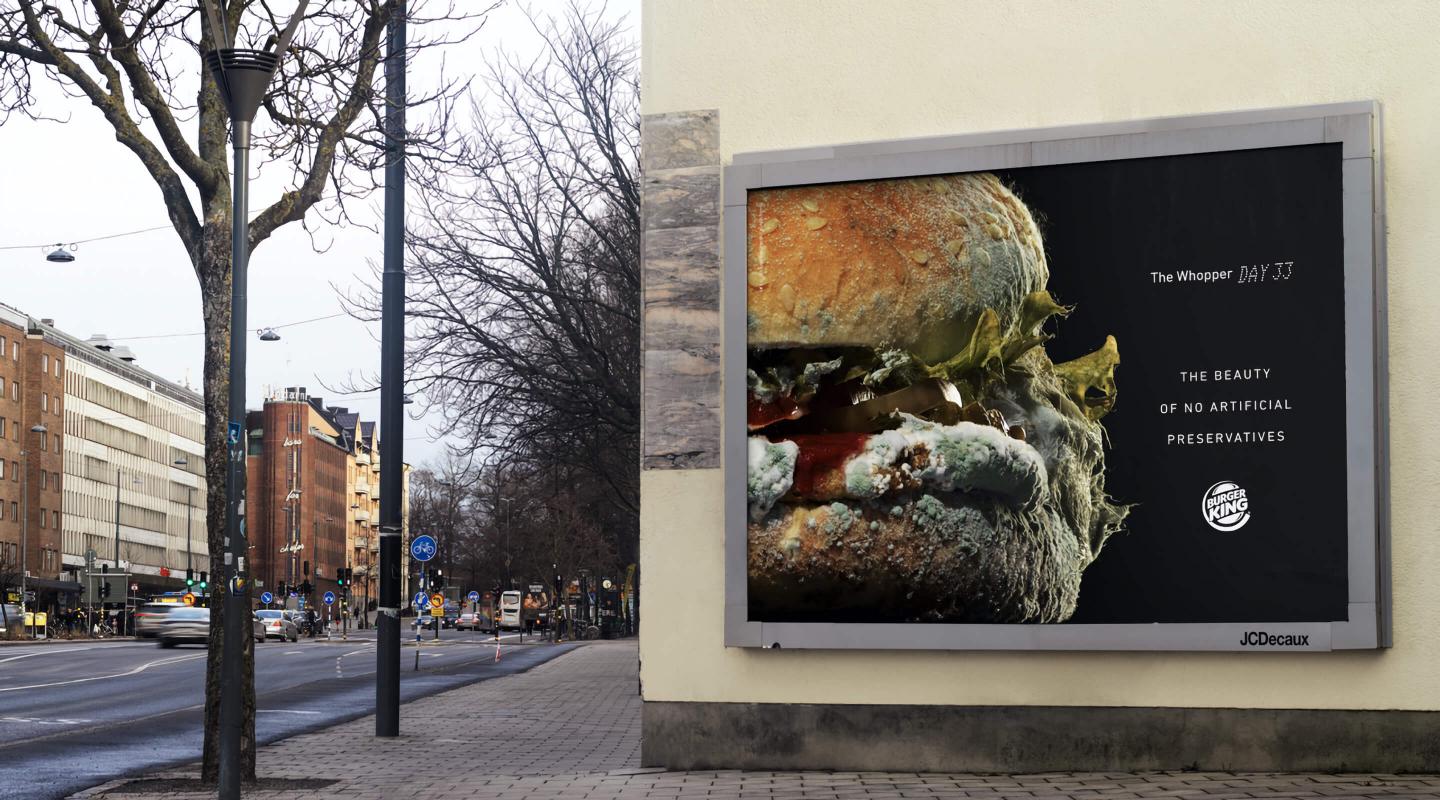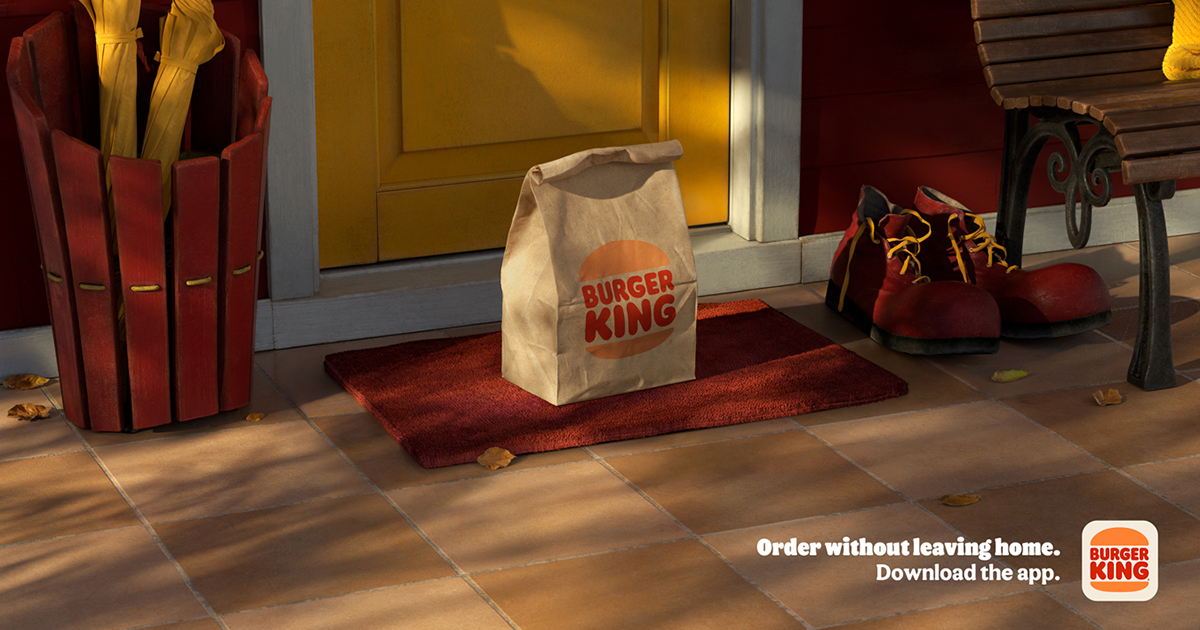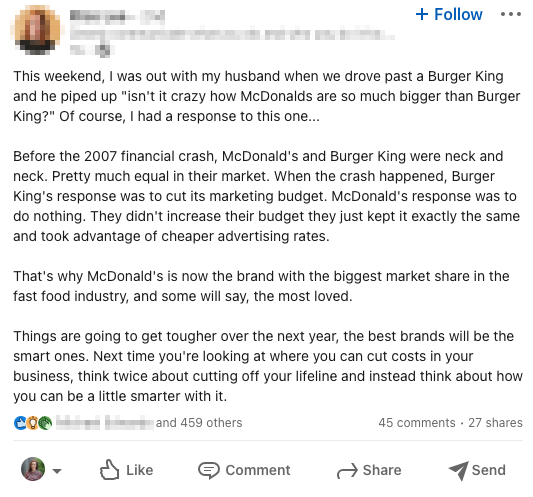Competition can bring out the worst in us. Tribal instinct kicks in when we see a competitor in our space, especially when there is a risk of losing customers. Passion for our own business can drive us to panic and act irrationally, wasting time and money on uncalculated decisions.
There is nothing more frustrating than seeing a close competitor swoop in and start campaigning in your market. It feels personal. But the last thing you should do is puff your chest out and start a retaliation campaign.
In fact, sit tight and watch your competitor close enough and you might just spot fresh opportunity for your own business.
How Burger King has burnt its chances of overtaking McDonald’s
The McDonald’s vs Burger King rivalry cuts deep through both brands’ histories and is an example of two opposite responses to close competition.
When consumers debate “which one is best,” the most common answer is McDonald’s, usually followed with something like “but Burger King actually tastes nicer!” Nonetheless, the first choice is McDonald’s, and that is reflected in the global worth of both brands. Where McDonald’s boasted $23.22 billion revenue in 2021, Burger King’s totalled a mere $1.81 billion.
I recently saw a widely shared post on LinkedIn claiming to explain why McDonald’s appears bigger than Burger King. It stated that during the 2007 recession, Burger King slashed its marketing budget while McDonald’s “did nothing.” Apparently that’s why McDonald’s seems more successful now.
This is absolute tosh. It’s daft posts like this that cause aspiring small businesses to believe that the amount you spend on “marketing” (assuming they actually meant “tactical marketing activity”) is more important than strategic development and competitive positioning.
The 2007 recession has absolutely nothing to do with Burger King’s relative size to McDonald’s. Burger King took a bigger hit to revenue during that time, but the claim it slashed “marketing” is false.
There is a simple answer as to why McDonald’s is the biggest fast-food brand in the world, and one which can withstand economic downturn better than its competitors. It’s the same answer as to why Burger King is nowhere near even snapping at McDonald’s heels.
The answer? McDonald’s has always been better at competitive positioning and market strategy, while Burger King has always been the jealous rival with a turbulent history of poor leadership. Whether consumers explicitly notice or not, McDonald’s has more than a competitive edge – in fact, it has been leagues ahead of Burger King in its market strategy since both brands’ founding days in the 1950’s.
The public competitive rivalry has clearly bolstered McDonald’s claim over the market and tarnished Burger King’s reputation. But before we get into Burger King’s petty attempts to steal McDonald’s customers through the years, we need to understand a bit of background history.
Two very different tales of growth
From McDonald’s long-running global franchising strategy, to product consistency, prolific demographic profiling and market penetration, and that consistent connotative positivity of messaging, McDonald’s has never faltered in its world domination plan from the outset.
Growth was never smooth for Burger King. By the end of the 60’s, the chain had 250 locations in the US when it was sold to The Pilsbury Company in 1967. Throughout the 70’s and 80s, Pilsbury spent many attempts to restructure the organisation, and even headhunted a McDonald’s exec to help revamp the brand – to no avail.
A fiscal slump was blamed on poor operational performance and bad leadership, even after it was sold again to a British beverage company in 1989. Diageo didn’t even try turning it around, and after years of brand neglect sold Burger King in 2002 to a group of investment firms. These owners successfully reorganised the company, took it public in 2006, and revitalised the advertising strategy with a newly appointed agency.
This couldn’t be further from the McDonald’s story. In my opinion, the success began at the very beginning, when the McDonald’s brothers identified that fast-food efficiency was a gold mine. Everything they did from the outset was to ensure the cheapest, fastest, and most attractive burger bar out there – even designing their first restaurant with efficiency in mind, and the goal of luring in customers with its attractive colours and the infamous gold arches.
Its growth from then was as smooth as the arches, never shifting from its core market strategy. In its growth strategy statement today, McDonald’s says:
“Consumers continue to prioritize brand trust, great taste and value as top reasons why they choose McDonald’s. As customers’ expectations are constantly shifting, we can build equity in our brand and trust by clearly articulating what we stand to do in the world: feed and foster communities.
“Through our actions and communications, we will deliver on our purpose and mission and ignite our brand as a growth driver by taking a global, unified approach to building trust; creating a stronger connection to our customers to drive advocacy and continuing to offer great value and everyday affordability available to everyone.”
If you read between the lines, that means brand consistency is king – and product development is the driving force of its marketing.
Two very different advertising strategies
In my opinion Burger King always had a strange way of fighting the competition. Rather than focusing on building a relationship with its market, Burger King has always taken an abrasive route in its advertising.
It’s like the jealous rival, the one that will simply bad-mouth the other for being more successful. This is where, I believe, Burger King has repeatedly burned itself with a reputation for being a petty competitor, ultimately turning consumers off.
When you compare the TV advertising throughout the timeline, you couldn’t find two more opposite approaches to two very similar product propositions.
Let’s look at TV adverts in the 80’s as an example. McDonald’s clearly had a deep understanding of its different customer groups, most prominent being families with kids. From utilising movie partnerships to the Happy Meal, from Ronald McDonald to children’s parties, McDonald’s had kids wrapped around their little finger – using what I call “pester power” to bolster sales.
But it didn’t stop with kids. Every customer group was targeted. It’s “good time, great taste” slogan carefully threads through each advert.
Meanwhile, Burger King spent nearly every penny of its TV ad budget comparing itself to McDonald’s, focusing on the fact that it’s flame grilled burger tastes better than a McDonald’s patty.
(By the way, I’m not even going to go into Burger King’s answer to Ronald McDonald – The King – because I can’t even begin to analyse what drove the BK bosses to decide that abomination was a good idea).
The following TV ads are from the US, 1988:
The look of the McDonald’s brand has evolved quite dramatically in recent years, yet its sentiment has remained. It’s key messages on TV adverts still focusing on that innate positivity and a sense of friendship and belonging.
Meanwhile, Burger King has become arguably even more desperate in its attempt to point fingers at McDonald’s. In 2018 Burger King launched an app in the US, and when users download it, they can claim a Whopper for 1-cent. But here’s the hilarious catch – they only qualify for the promo code if they order the burger in McDonald’s territory.
Don’t believe me? Here’s the ad:
In 2020, that mouldy Whopper campaign sent the advertising industry into a frenzy. The ad, by Ogilvy, showed a decomposing Whopper – a bold move to say the least. But while many see it as a mould-breaking campaign (please excuse the pun), critics (including me) see it as just another stab at McDonald’s. It was clearly in response to the social media hype that if you leave a McDonald’s burger out, it doesn’t decompose because of alleged preservatives.

Be bold, calculated, and never petty
While focusing on your competitor’s strategy is a crucial step in developing your own business direction, aggressive and obvious messaging to oust your competitor will not do your growth strategy any favours. Ultimately, like Burger King, you may turn heads for a bit. But when it comes down to customer preference, they will always choose the brand that puts them first, with efficiency and value at the core of its proposition.
McDonald’s is proof that keeping a cool head in the face of competition is the best way. Develop your products to meet your customer’s needs – and present it to them in a way that lets them know they’re in safe hands.
Market strategy is not just for big brands. It’s what drives all your business decisions. When the McDonald’s brothers decided to focus on efficiency in their very first burger restaurant – they made the most successful marketing decision in the brand’s history.
PS. This French Burger King advert did make me laugh, though:


